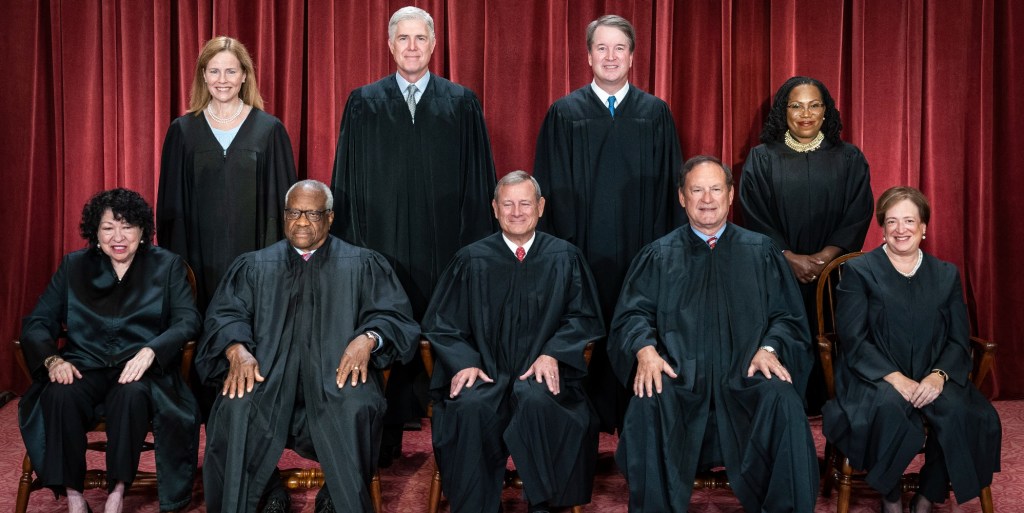US Supreme Court poised to roll back LGBTQ+ rights again. How did we get here?

Lorie Smith says her web design business has a right to refuse same-sex couples for wedding commissions. (Getty)
LGBTQ+ rights in the United States could take a step back because of an odd case before the Supreme Court, where a woman is fighting for the right to turn queer people away from her web design business.
Lorie Smith claims Colorado’s LGBTQ-inclusive non discrimination law violates her Christian beliefs.
She filed a lawsuit in 2016, claiming her business – 303 Creative LLC – had a right to refuse wedding commissions for same-sex couples.
Her legal pursuits at the federal district court level ultimately failed. However, in February, the Supreme Court agreed to hear the case on Smith’s free speech claim.
The case is odd because, according to court filings, it appears Smith has never been asked to create a wedding site for a same-sex couple.
So how did we get here and what could it mean for LGBTQ+ rights?
Well for starters, the Supreme Court is the highest jurisdiction in the US – its decisions override any previous ones made in a case.
The court is made up of nine judges, who take up the role on a lifetime tenure and were appointed by whoever the US president was when there was a vacancy.

After Donald Trump’s presidency, it means there is a conservative majority of six after three judges were appointed during his term.
Those three – justices Neil Gorsuch, Brett Kavanaugh, and Amy Coney Barrett – have already sided against LGBTQ+ rights in previous cases.
Justice Barrett has even been urged by former members of her secretive faith group, the People of Praise, to back away from the Lorie Smith case due to her views.
The Supreme Court has made some major rulings since becoming a conservative majority – its most recognised one being when it overturned Roe v Wade earlier this year, gutting abortion rights across the US.
However, political leaning doesn’t always mean everything, like when the court unanimously ruled a Catholic foster agency can turn away same-sex couples.
Republicans and right-wing activists would likely take a ruling in Lorie Smith’s favour as a pretty big win, as they continue to increasingly target LGBTQ+ rights.
Religious protections is something Republicans are strongly pushing for — recently resulting in three amendments to the Respect for Marriage Act, which will protect same-sex and interracial marriage.
At the state legislature level, a record number of anti-LGBT+ bills were filed in the first two-and-a-half months of 2022.
Cases denying business with LGBTQ+ people
The Lorie Smith case isn’t the first time people have headed to the Supreme Court with their sights set on refusing to have LGBTQ+ customers.
There’s the aforementioned decision from June 2021 that ruled in favour of Catholic Social Services, which had argued it should be able to refuse to place children with same-sex couples but still receive taxpayer funding.
There’s also the Jack Phillips case, which has some similarities to Smith’s — although Phillips actually had business with queer people.

Phillips, a baker from Colorado, refused to make a cake for a gay couple after finding out they were celebrating their wedding.
The Colorado Civil Rights Commission initially ordered him to stop discriminating against same-sex couples by refusing sales his business would make to heterosexual couple.
However, in 2018, the Supreme Court overturned that decision – ruling the state violated ‘religious freedom’ protections.
Concerns of what a win for Smith means
During arguments before the court on Monday (5 December), concerns were raised by the court’s three liberal judges.
That included concern a win for Smith could lead to businesses being able to discriminate beyond the LGTBQ+ community – such as Black, Jewish, or Muslim customers, the Associated Press reported.
NBC News similarly reported civil right groups saying it could completely undermine the purpose of anti-discrimination laws.

